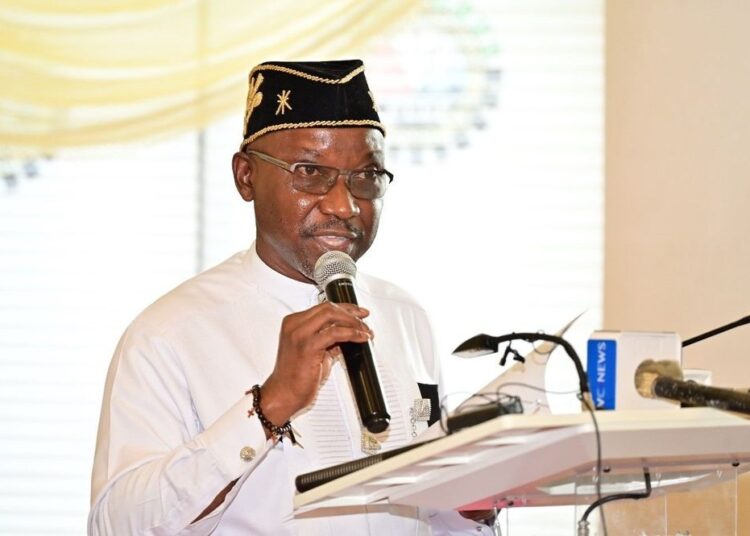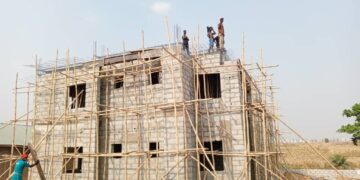Minister of state, Petroleum Resources, (Gas) Ekperikpe Ekpo has outlined three priority areas, to boost development of Nigeria’s huge proven gas reserves, currently put at about 209 trillion standard cubic feet.
Speaking during a ‘Stakeholders’ Consultative Meeting on Gas Sector’ in Abuja yesterday, Ekpo said the ministry is prioritising increasing upstream gas production; the domestication and penetration of LPG, and completing major gas midstream infrastructure and projects such as the including the AKK Gas Pipeline Project, the OB3 Gas Pipeline Project, and the ANOH Project, as well as enabling flagship Projects like the Brass Methanol Project, to enhance the efficiency and capacity of the sector.
The minister emphasised the need for collaboration and shared vision in shaping the future of the nation’s gas sector, while highlighting the importance of engaging in open and constructive dialogue, acknowledging challenges, and recognising opportunities within the gas industry.
“It is imperative that we work together to unlock more resources to provide gas for power, GBIs, LNG export, and domestic use. This will foster economic growth, ensure energy security and eradicate poverty, a cardinal objective of President Bola Tinubu’s Renewed Hope Agenda.
“Nigeria is positioned as one of the leading gas-rich countries in the world. We have, however, not unlocked the full potential of this valuable resource.
“This underperformance can be attributed to gas flaring, inadequate infrastructure, pricing concerns, policy and regulatory gaps, and limited funding.
Ekpo also reiterated the federal government’s commitment to developing an adaptable roadmap that reflects the collective intelligence of industry stakeholders, with a focus on fostering growth, innovation, and sustainable development.
While acknowledging the challenges in the gas sector, such as gas flaring, inadequate infrastructure, pricing concerns, and policy and regulatory gaps, limited funding, environmental concerns, the growing urgency for a smooth energy transition as well as a lack of comprehensive gas development blueprint, he expressed belief that the stakeholders can collectively proffer solutions.
Also speaking, permanent secretary of the ministry, Nicholas Agbo Ella, said the meeting aimed to gather concise and current information from key industry players about the realities in the Gas sector and to seek solutions to identified problems.
Ella emphasised the importance of the diverse expertise and perspectives present, highlighting the need for collaborative efforts to achieve maximum dividends from Gas resources. He acknowledged the vast challenges and opportunities within the Gas sector, ranging from technology and the environment to the economy, and stressed the significance of open and transparent discussions to address these issues.
Encouraging active engagement and the sharing of expertise, Ella called for the collective inspiration of innovative solutions and the forging of strategic partnerships to shape the future of Gas development efforts.
National President, Independent Petroleum Marketers Association of Nigeria (IPMAN), Abubakar Shettima, expressed readiness to collaborate with the government towards the actualisation of the Compressed Natural Gas (CNG) and LPG use.
“IPMAN has the highest number of retail outlets nationwide for LPG and that of CNG will increase through our full partnership in the gas programmes of the government.
“Though the cost of LPG is a bit higher, when you compare with other sources of energy, LPG is still cheaper than kerosene. There is a need to reduce the cost of petroleum products through the use of CNG,’’ he said.
Chairman, Oil Producers Trade Section (OPTS), Osagie Okunbo, said it was looking forward to translate the gas framework on ground into reality in view of the abundant gas resources.
He added that it was being owed 1.3 billion dollars for gas that has been produced and sold in the past.
Okunbo said that this was a key issue in the gas discussion the meeting was having, urging that producers be encouraged through appropriate mechanisms.
“The government should ensure that the price set for gas is such that it will enable gas production.
“Gas price is due for review in April; we will be making our inputs known to the authority to make sure the price is cost reflective,’’ he said.











